The human rights organization Amnesty International has described an EU-funded closed migrant detention facility on the Greek island of Samos as a "dystopian nightmare." The Amnesty report follows several other alarms sounded over conditions in Greek migrant camps by other human rights groups.
On July 30, the human rights group Amnesty International published its latest briefing on conditions in the Samos Closed Controlled Access Center, alleging that conditions inside the EU-funded camp are "sub-standard" and that some people are being detained "unlawfully." It further claims that migrants in the camp face obstacles in accessing basic services and experience "systematic arbitrary de facto detention."
Similar findings on Greece's closed centers for migrants have been published recently by both the Council of Europe’s Committee for the Prevention of Torture, and two smaller Greek-based NGOs Refugee Legal Support (RLS) and Mobile Info Team (MIT) which states that the closed camps tended to exacerbate "the vulnerability of residents who remain isolated from essential services and social networks in urban centers."
'I am scared all the time'
A man called Anwar, from Syria, told the Amnesty researchers: "We are facing mental health issues. I escaped from the war. We left Syria to have a better future […] not [to be] here in unsafe, unclean [conditions], difficult for all reasons. I left my family back home and now I feel punished here."
A Kurdish woman named as Farida* living in Oinofyta camp near Athens told the RLS / MIT researchers: "I can’t even let my children go to the toilet alone. I have to accompany them. I am scared all the time. We have one room for the four of us... This is like a very bad prison. My children are suffocating."
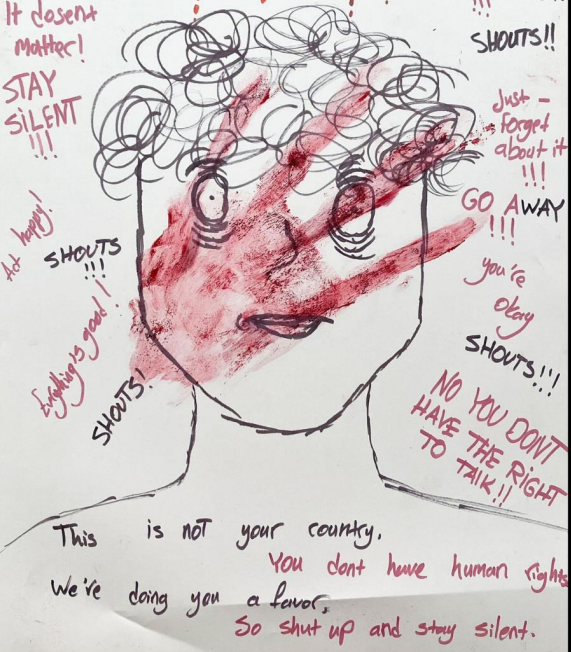
Another woman, Fawzida, a Yazidi Iraqi woman living in Serres camp, told the RLS/ MIT researchers: "Since I arrived here, I’ve been struggling with psychological issues, but I haven’t been able to access any services. As Yazidis, [given] what happened in Iraq, we came here under the assumption that there will be assistance and there will be support and we will have rights. We did not find that here, we did not have access to these rights."
Also read: Growing up in a Greek refugee camp
Fined by the Greek Data Protection Authority
Most of those inside the camp come originally from Africa and the Middle East, according to the report. This has led Amnesty to accuse the Greek authorities of "racializing people on the move," by placing only certain categories of people inside the camp.
Amnesty said that those inside "faced obstacles accessing basic services and experience systematic arbitrary de facto detention."
Entry and exit of the camps ismanaged by digital systems. In 2021, Amnesty described the CCAC on Samos thus: "The CCAC is equipped with a rigid system of containment and surveillance, including double barbed wire metal fencing, CCTV throughout the facility, and the 24/7 presence of patrolling police and privately contracted security officers."
In April 2024, the Greek Data Protection Authority fined the Ministry of Migration "in relation to the Data Protection Impact Assessments" conducted by the Ministry, which were found to be "substantially incomplete and limited in scope," stated the European Data Protection Board.
The Greek Ombudsman, in a report published in April 2024, confirmed that they began receiving reports of inadequate living conditions from inside the camp in September 2023.
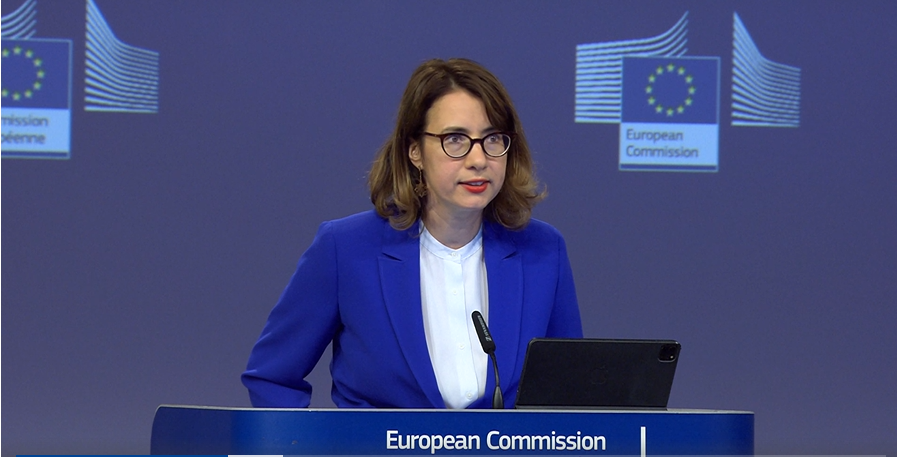
European Commission response
In answer to questions from the press about the Amnesty report on Tuesday, European Commission spokesperson Anitta Hipper from the European Commission replied: "We are aware of this report. Our position is clear. Member states must provide adequate reception conditions, in line with the EU rules."
Hipper went on to reference the new EU pact on migration and asylum, which she said "puts in place a fair and effective system of solidarity and responsibility to collectively manage migration."
The EU Commission spokesperson added that, "when it comes to Greece, the Commission has continuously supported the Greek authorities in particular to improve the reception capacities, and also the living conditions and security. And also to create additional accommodation places both on mainland and on the islands. And also to reinforce medical care for migrants."
Amnesty says that the EU Commission "has to date failed to remedy the Greek authorities' long-standing failures." It says that the EU Commission should see the failures Amnesty identifies at the Samos facility as a "warning sign" for how the EU is going to implement the new pact, which includes setting up similar centers at the EU’s external borders.
Also read: Refugees and migration, criticisms of the EU's asylum policy
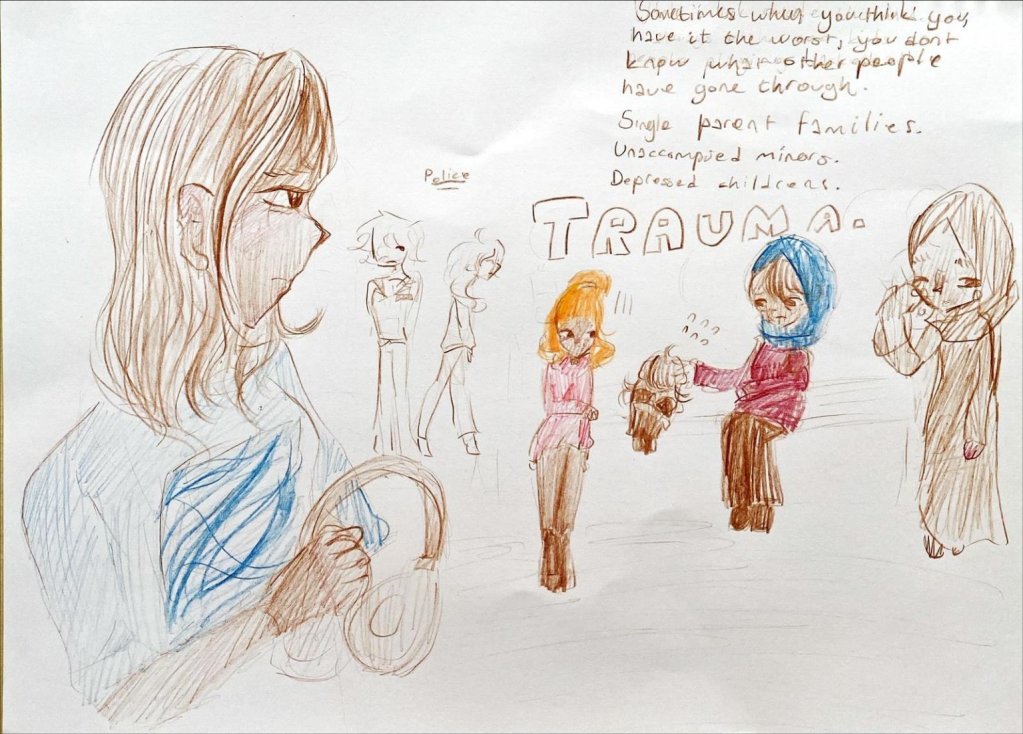
Overcrowding led to worsened conditions
The Amnesty findings are based on visits to the Samos CCAC between July 2023 and January 2024, when they acknowledge that "increased arrivals led to a situation of overcrowding in the center, exacerbating the shortcomings in the provision of basic services."
Amnesty reported that in October 2023, 4,850 people were held in the camp, which originally had a capacity of 2,040 but was increased to 3,650 in September 2023, "without any apparent intervention to increase accommodation spaces." By February 7, 2024, the Greek National Commission for Human Rights (GNCHR) reported 600-700 people housed "in non-residential, administrative buildings."
Since February 2024, Amnesty noted that the number of residents in the Samos CCAC has decreased and the center is holding fewer people than full capacity.
Amnesty highlighted that on entry, residents undergo a 25-day period where they are not allowed to leave the camp, describing this as "arbitrary and de facto forced detention."
Also read: Greek migrant camps malfunctioning and overcrowded
Access to water
A long-standing issue of the lack of running water was cited as another problem in the camp, preventing inmates from attending to their personal hygiene needs, underlined Amnesty in the briefing. Water was apparently only available for between two and four hours a day.
Tom, a man in the center with his child told Amnesty: "We can’t wash clothes anywhere. When we arrived, we only received one blanket, one soap and two rolls of toilet paper."
Hadi, Jabir and Karim, mentioned above, similarly recounted: "We were not given toothbrushes, only soap and a blanket […] They gave us one soap for two rooms”. A man in the CCAC with his family including children, said they had not received "diapers or hygiene products" for almost two months.
He notes: "we buy diapers when we have money, cheaper diapers, and my child had a skin reaction. We didn’t change diapers all day because we don’t have enough."
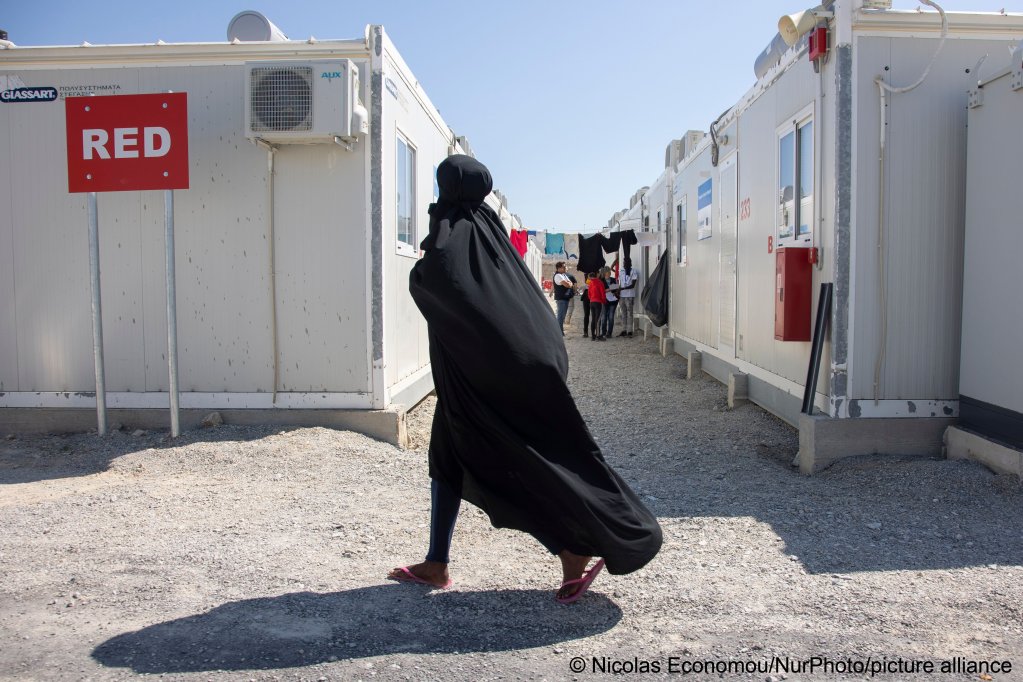
A Palestinian man, named as Ameer, noted: "Water in the bathroom is dirty and discontinuous. Me and my wife share the toilet and bathroom with a lot of people including single men. There are lots of cockroaches, I am asking just detergent so that we can clean for ourselves. My kids got lice in the hair and cockroaches move on them while they sleep. Kids wake up at night and find the cockroaches walking on them and it is traumatic."
Also read: Demand for action after another death at Greek migrant camp
Medical provision found wanting
Medical provision was also found wanting. Amnesty International says that the CCAC has not appointed a permanent medical doctor since its opening. The charity providing healthcare in the center also lacks specialized staff to help with sexual and reproductive health and care, despite women making up 20 percent of the population of the CCAC. Incidents of scabies and skin conditions were reported in the center, and were blamed on the lack of running water.
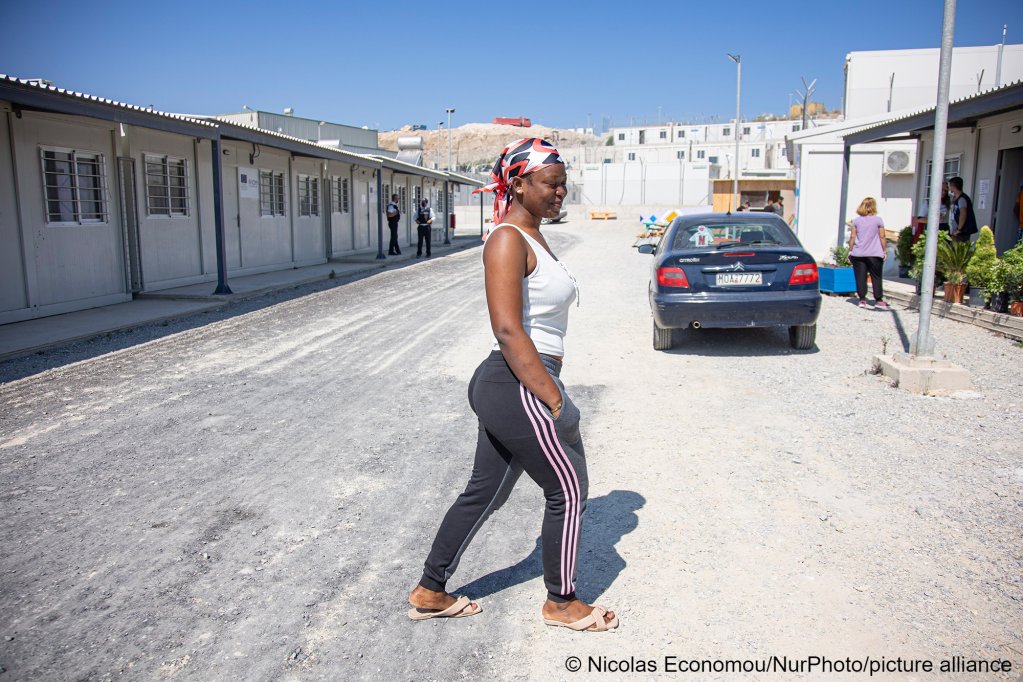
The IOM was supposed to take over the management of healthcare in the center, stated Amnesty, but although the contracts of the medical staff working for the charity were due to expire at the end of June 2024, the new project didn’t seem to have taken over and there was no confirmation at the time of the report’s publication as to what would happen in the near future.
The Greek authorities told Amnesty in May that they foresaw the arrival of an additional doctor, via a project managed by the Hellenic Red Cross, for the next six months.
'Fast-track procedures'
Amnesty also pointed out that according to the law, "people seeking asylum on the Aegean Islands tend to be processed through the 'fast-track border procedure,' which provides for shorter time-limits and lower procedural rights.
Under the law, people in vulnerable situations should be transferred to the regular asylum procedure if they cannot be adequately supported through the fast-track one. The Greek authorities failed to answer Amnesty International’s request for data about these transfers."
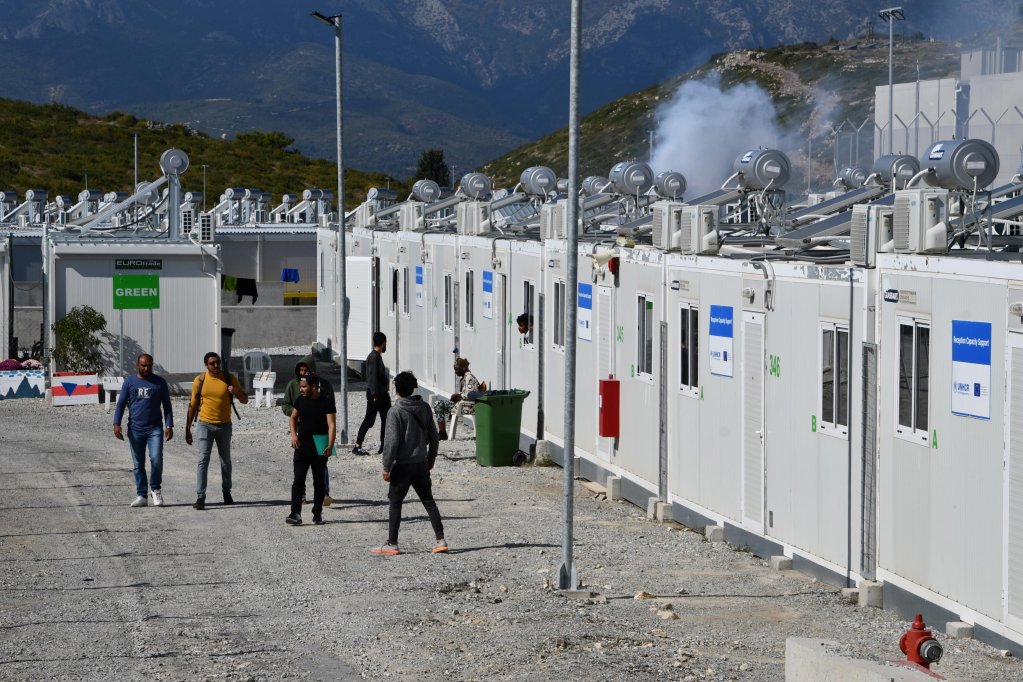
The center has a special section for unaccompanied minors. Amnesty expressed concern at how restrictions had been placed on the minors from visiting the rest of the camp, or leaving the center, saying that the CCAC was restricting their right to liberty and security and breaching international standards regarding the detention of children in the process. The detention of children is strictly prohibited.
The briefing alleged that they had found reports of "a practice whereby the authorities offered residents to waive their rights to reception and other assistance in Greece in exchange for being allowed to leave the CCAC and the island. This practice may be incompatible with the international standards whereby a violation of the prohibition of torture or other ill-treatment can occur where inadequate detention conditions are imposed for the purpose of deterring, intimidating or punishing” people, or coercing them into withdrawing their requests for asylum, subsidiary protection or other stay."
Inadequate conditions 'can even amount to torture'
As a result of their findings, Amnesty International went as far as saying that they considered the living conditions they found the CCAC’s residents living in, at times between September 2023 and January 2024 "may also have breached the prohibition of torture or other ill-treatment."
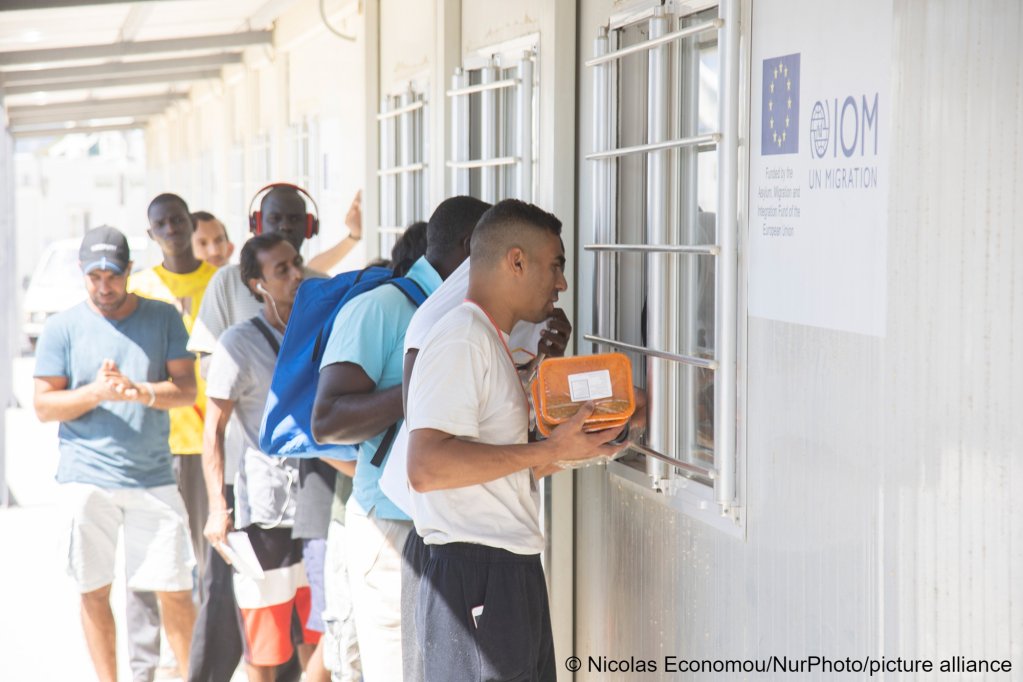
They quote a report from the Special Rapporteur on Torture who notes that "grossly inadequate detention conditions can even amount to torture if they are intentionally imposed, encouraged or tolerated by States […] for the purpose of deterring, intimidating or punishing migrants or their families, coercing them into withdrawing their requests for asylum, subsidiary protection or other stay."
Furthermore, UNHCR detention guidelines state that "detention that is imposed in order to […] dissuade those who have commenced their claims from pursuing them, is inconsistent with international norms” and it is not “permitted as a punitive […] measure."
CPT: Allegations of deliberate physical ill-treatment
On July 12, the Council of Europe’s Commission for the Prevention of Torture (CPT) published a report based on visits to Greece in a similar timeframe to the Amnesty briefing. They also called on the Greek authorities to "improve the conditions in the country’s immigration detention facilities, and especially the newly-built and EU-funded centers on the Aegean islands, while ensuring that foreign nationals are treated both with dignity and humanity."
They visited more places than just Samos, but said they "received several credible and consistent allegations of deliberate physical ill-treatment of detained foreign nationals by police officers in certain police stations in Athens and in the pre-removal detention centres of Amygdaleza, Corinth and Tavros (Petrou Ralli)."
The CPT added that "foreign nationals continue to be held in poor conditions of detention. This is the case for several police stations which are inappropriate for stays exceeding 24 hours."
They also found that at the time of their visits to CCACs on the Aegean Islands, the centers "did not meet the basic reception and protection needs of applicants for international protection."
Greek Migration Ministry responds
InfoMigrants asked the Greek Migration Ministry for a response to the Amnesty Report on Monday afternoon (July 29). At the time of publication, they had not yet replied.
The Greek authorities did however issue a long and detailed response to the COE’s findings published on July 12, which can be read here.
In a letter, dated May 29, 2024 to the president of the CPT, Alan Mitchell, the Greek Migration Ministry said that "every possible effort was being made so that especially vulnerable persons are moved immediately and as a matter of priority to structures in mainland Greece."
They added that the pressures placed on the national reception system in the summer of 2023, "pushed the new RICs /CCASs to their limits and highlighted areas that needed immediate improvement and resolution, many of which have already been addressed."
They admitted that Samos, as well as Kos was under "extremely high pressure as a result of a spike in arrivals in September, whereby Samos already had a high level of occupancy, exceeding 3,300."
The Greek Migration Ministry also admitted that although they had managed to move more than 2,000 people between September and October from Samos to the mainland, "it was necessary to utilize – among others — communal and administrative spaces for the temporary housing of third country nationals until the structure was decongested in the beginning of the new year."
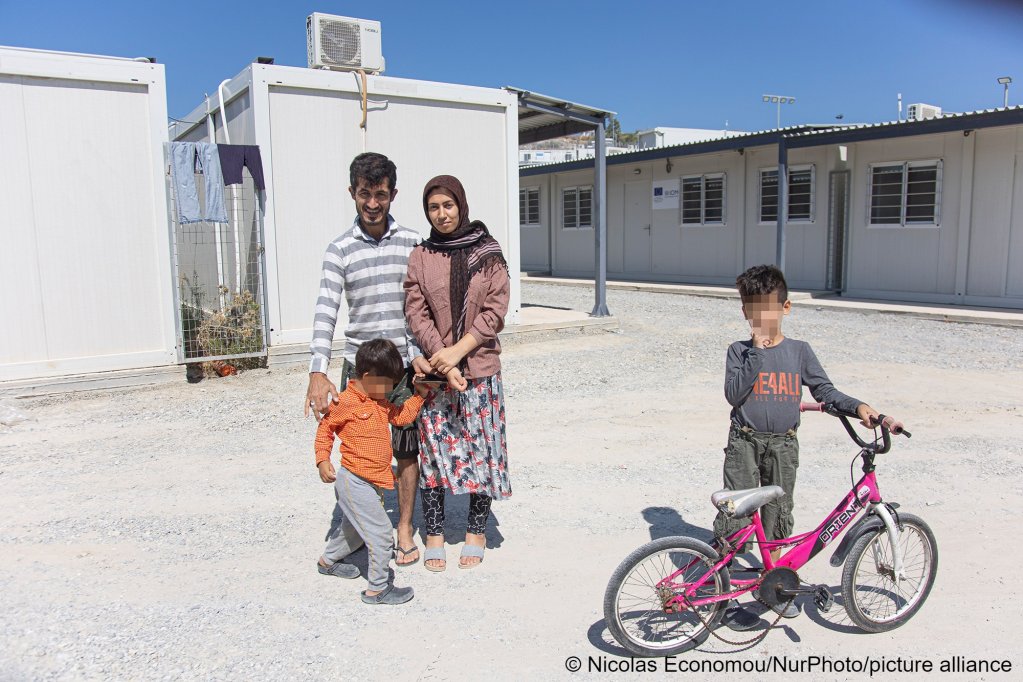
The Migration Ministry claims that the appointment of new staff means that all those who enter the facility have their procedures and claims completed within the maximum 25-day limit. They also concede that at times the "over population of the site …brought the water supply system to its limits." They say that situation lasted until the "first months of 2024.
They said they had to “control” the use of water, but also brought in additional water sources, via an army tank truck, a fire brigade truck “to ensure the adequacy of running water." They said that for drinking, three liters of bottle water was provided to every resident each day.
*Not their real name, changed by the organization interviewing them to protect their identities.
